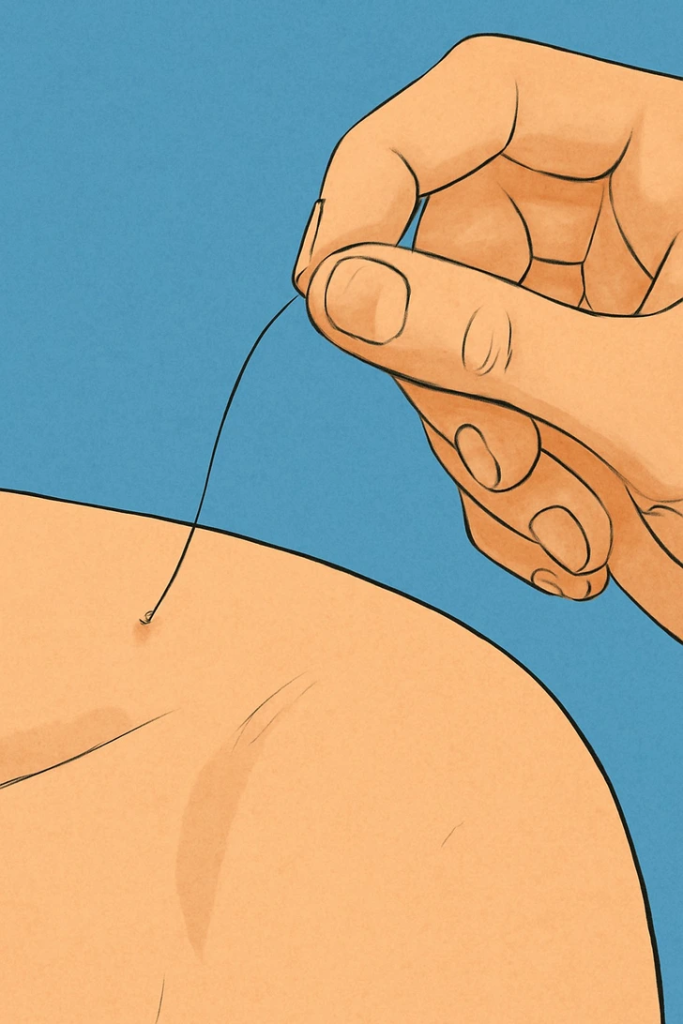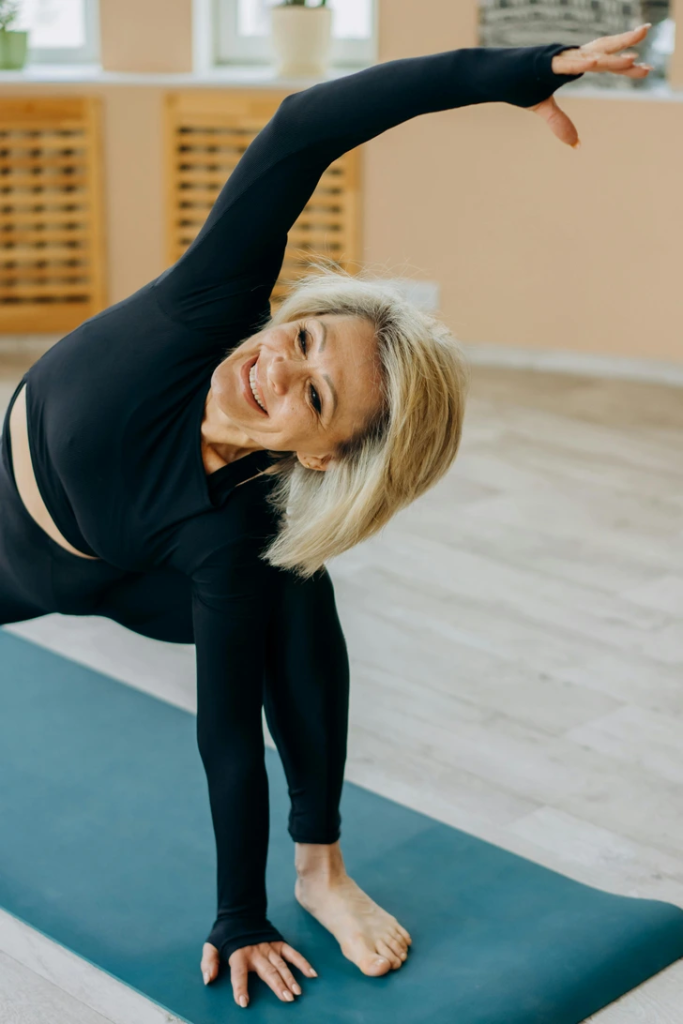Aging doesn’t hit you like a freight train. It sneaks in quietly—first a creaky knee, then a rogue chin hair, and before you know it, your back starts popping like bubble wrap. Sound familiar? You’re not alone. What we often call “weird” signs of aging are actually perfectly normal shifts happening as your body adapts over time.
The good news? Most of these changes are manageable—and understanding them can take away the fear and awkwardness. So, let’s break down 14 totally normal aging effects that might catch you by surprise (but definitely shouldn’t freak you out).
Back Spasms Aren’t Just for Your Grandparents

Sudden spasms that stop you mid-stretch or mid-laundry fold? Yep, they can hit in your 30s and 40s. As you age, your spinal discs lose flexibility, and your core muscles might not be as strong as they once were. That makes your back more prone to locking up—especially after sitting too long or lifting something wrong.
Strengthening your core, moving often, and practicing good posture can go a long way. Because while the spasm might feel dramatic, most of the time, it’s just your body sending an “I need support” memo.
Wobbly Balance? Blame Subtle Body Shifts

Feeling a little off when you pivot quickly or trip over absolutely nothing? That’s your reflexes slowing down ever so slightly. Vision changes, joint stiffness, and muscle response time all add up to you occasionally feeling like Bambi on ice.
The fix? Add balance exercises, stretching, and movement into your routine. Think yoga, tai chi, or even standing on one foot while brushing your teeth.
The Mystery Bruises That Show Up Overnight

Ever find a bruise and think, Where did that even come from? Thinner skin and reduced fat cushioning as you age means even small bumps can leave a mark. Add in hormonal changes like lower estrogen, and your capillaries become a little more fragile too.
While it looks wild, it’s normal. But if bruises become frequent or extra intense, it’s worth checking in with your doctor.
Surprise! A Chin Hair

You’re going about your day and then—bam! A lone, thick, dark hair on your chin or neck. It feels like it popped up overnight, but it’s actually your hormones shifting behind the scenes.
Estrogen dips and androgen levels rise with age, which can change hair growth patterns. It’s super common, and while it might feel shocking at first, it’s nothing a quick tweeze can’t fix.
When Breasts Lose Their Bounce

Gravity is undefeated, and breasts—no matter the size—tend to change shape over time. Whether it’s from pregnancy, breastfeeding, or just the natural loss of skin elasticity, sagging happens. This doesn’t mean anything’s wrong—it just means your body’s adapting.
Supportive bras, posture awareness, and chest exercises can help, but there’s no need to panic. This is one of the most universal signs of getting older.
Clicking and Popping Joints Are Totally Normal

You twist your torso or squat down, and your joints snap, crackle, and pop like a bowl of cereal. These sounds usually come from shifting air, aging cartilage, or tight tendons. As long as it doesn’t hurt, you’re probably in the clear.
Hydration, movement, and stretching can help reduce the noise—and keep everything moving smoothly.
Metabolism Slows, But You’re Not Doomed
As you age, your resting metabolism naturally dips, especially after 30. Even if your eating and exercise habits stay the same, you might notice a few extra pounds showing up anyway.
It’s not sabotage—it’s science. The key is adjusting your routine: strength training to build muscle, eating nutrient-rich foods, and staying active to help your body stay efficient.
Muscle Mass Starts to Disappear (Unless You Fight It)

Around your mid-30s, you start to lose muscle mass—around 3–5% per decade if you’re not actively maintaining it. And since muscle burns more calories than fat, this loss contributes to your slowing metabolism.
Lift weights. Do bodyweight exercises. Stay strong not just for how you look, but for energy, mobility, and long-term health.
Hormonal Shifts = Energy Rollercoaster
Video: How Your Body Ages From Head to Toe
Perimenopause can start as early as your late 30s, and with it comes hormonal fluctuations that affect your mood, sleep, and energy. You may feel more fatigued, experience brain fog, or notice belly fat that’s tough to lose.
It’s all tied to shifting estrogen, progesterone, and even cortisol. Reducing stress, sleeping well, and supporting your body nutritionally can help regulate the ride.
Your Gut Microbiome Is Changing Too
After 30, your gut bacteria composition begins to shift. It’s affected by everything—what you eat, your stress levels, hormones, and even how well you sleep. A less diverse microbiome can slow digestion, increase inflammation, and affect mood.
Eat fermented foods, fiber-rich veggies, and consider a quality probiotic. A happy gut = a happy everything.
Yes, Your Earlobes Might Look Longer

Surprise: your earlobes can elongate over time thanks to collagen loss and gravity. Wearing heavy earrings can speed this up, but even if you don’t, the change still happens subtly as you age.
It’s not weird—it’s skin being skin. Collagen-boosting skincare and lighter accessories can help if it bothers you.
Shifting Teeth and Changing Smiles

Even if you had braces, your teeth may start to shift again in your 30s and 40s. It’s a mix of bone changes, gum health, and grinding or clenching habits you might not even be aware of.
Night guards, retainers, and dental checkups can keep things aligned. Don’t ignore your mouth—it’s a major player in healthy aging.
Those Dark Circles Under Your Eyes? They’re Not Just from Late Nights
As skin thins and collagen fades, the area under your eyes may look darker or more hollow. Fat pads shift, and blood vessels become more visible, especially if you’re tired or dehydrated.
Stay hydrated, use gentle eye creams with vitamin C or peptides, and make rest a priority. It’s not vanity—it’s self-care.
Skin Texture Changes and Pores Look Bigger

You might look in the mirror and think, Did my pores always look this big? As cell turnover slows and collagen dips, your skin might feel rougher or less tight.
This is totally natural. Using exfoliants like glycolic acid, wearing sunscreen daily, and staying hydrated can keep your skin looking fresh and feeling supported.
Conclusion: Aging Is Normal—And So Are You
Let’s get real—aging isn’t weird. It’s your body doing exactly what it’s supposed to do over time. These changes may seem random or even alarming at first, but they’re shared experiences that connect us more than they separate us.
And the best part? You’re not powerless. With knowledge, movement, nutrition, and a good dose of self-love, you can support your body through every chapter. Aging doesn’t mean fading—it means evolving.